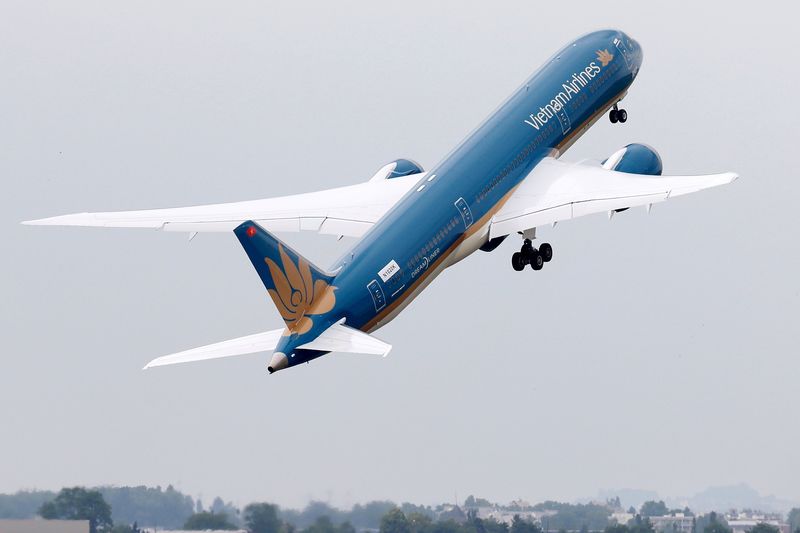By Tim Hepher and Andrea Shalal
PARIS (Reuters) - The boom in commercial plane orders of recent years appears to be giving way to a more sustainable pace of demand at the 2015 Paris air show, with jetmakers increasingly focused on lifting production to meet their record backlog of sales.
U.S. planemaker Boeing (N:BA) and European rival Airbus (PA:AIR) unveiled a steady stream of deals on Tuesday, day two of the aerospace industry's main annual gathering.
Boeing announced the biggest firm order of the event so far, with Dutch aircraft leasing company AerCap (N:AER) buying 100 737 MAX 8 jets in a deal worth $10.7 billion (7 billion pounds) at list prices, confirming a Reuters report.
Korean Airlines (KS:003490) split a $6.9 billion deal for 60 narrow-body jets between Boeing and Airbus, also confirming what sources close to the matter had told Reuters.
However, the number and size of the deals to date is below that of many recent trade shows, when cheap borrowing costs and strong growth in passenger numbers encouraged airlines to splash out on new, more fuel-efficient planes.
"The market is definitely slowing," said Sash Tusa, aerospace and defence analyst at UK's Agency Partners. "There are fewer orders this week than there have been at any air show in recent years. Manufacturers are going to have to fight much harder for what's available."
Some moderation in demand had been widely anticipated. Industry sources told Reuters on the eve of the show that, barring any last-minute surprises, Airbus and Boeing might struggle to announce 500 orders between them, compared with 697 at the Farnborough event last year, with which Paris takes turns.
There seems little prospect of a sharp deterioration in demand, however. Airbus raised its 20-year forecast for jet sales on Monday, citing the rapid expansion of airlines in Asia and the Middle East and echoing a similarly upbeat outlook from Boeing last week.
The biggest challenge facing planemakers now is to ramp up production to meet the record $1.8 trillion of orders they have booked for the coming decade.
Boeing is already planning to increase output of its popular 737 narrow-body jet to 52 a month in 2018 from 42 currently.
Its commercial airplanes chief, Ray Conner, said on Tuesday the company would be cautious about taking any decision to raise production towards 60 a month -- a level mooted as possible for both Airbus and Boeing.
PRUDENT ON PRODUCTION
"We are going to be very prudent in how we approach any rates above 52. It feels like the demand is higher than that, but that can be short-lived. So we are ... going to see how things progress," he told reporters.
"The worst thing for any of us is to oversupply; our intention is to not oversupply."
Conner also issued a warning to Airbus following reports the European group might apply for government loans to develop a revamped version of its A380 superjumbo.
"Whether they go forward with that, we will address as it comes along. That would not be in line with what the WTO (World Trade Organization) has said," he said.
The United States and Europe have been in a long-running trade dispute over mutual accusations of aircraft subsidies, with the row now evolving into one over whether each side has complied with WTO rulings.
In a bid to revive flagging sales of the A380, the world's biggest passenger jet, Airbus is in talks with customers about possibly adding new engines or making a version with about 50 more seats.
Away from passenger jets, Airbus said on Tuesday it would start a two-year development phase for a new helicopter aimed at improving fuel-efficiency and comfort for civilian customers in markets such as search and rescue and the energy sector.

Meanwhile, Lockheed Martin (N:LMT) said it would team up with Raytheon (N:RTN) and Canada's Bombardier (TO:BBDb) to develop a new surveillance and command and control aircraft for a future U.S. Air Force competition.